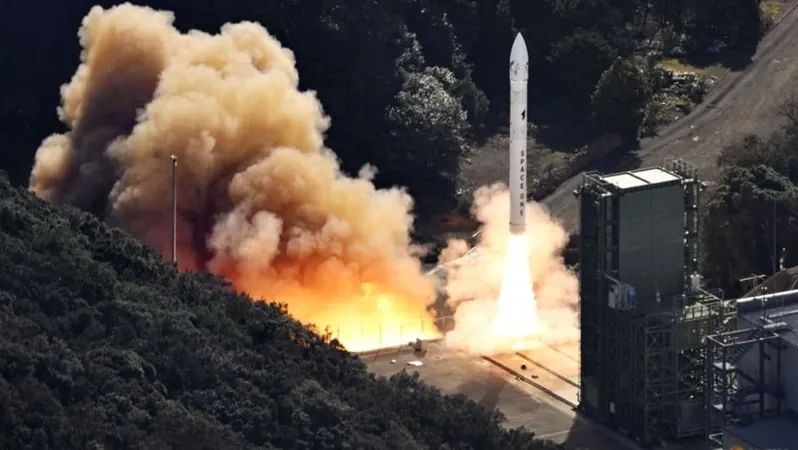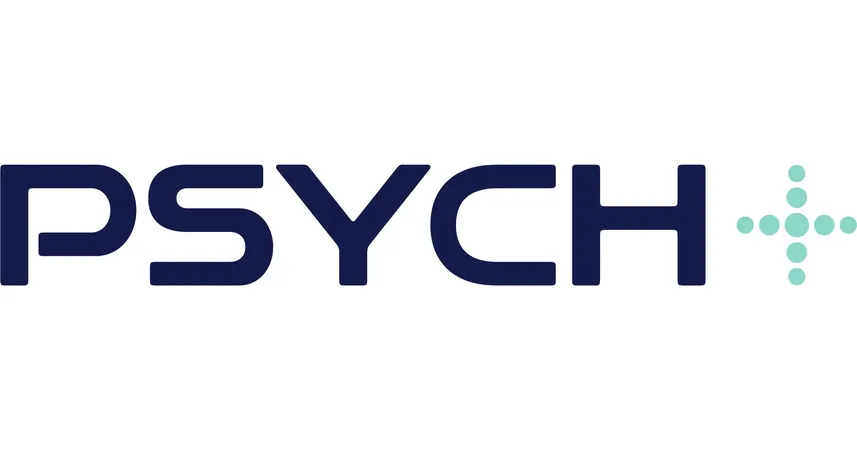
Japan's Space One Kairos Rocket Experiences Launch Mishap — What's Next for Private Space Ventures?
2024-12-18
Author: Arjun
TOKYO: In yet another setback for Japan’s burgeoning private space industry, the Kairos rocket developed by start-up Space One encountered severe difficulties just minutes after its launch on Wednesday (December 18). The rocket, designed to position satellites into orbit, was seen spiraling downwards shortly after lift-off, prompting the company to terminate the launch.
This incident marks Space One's second attempt at securing a place as the first private entity in Japan to successfully deliver a satellite into orbit, following a disastrous initial attempt earlier this year in March that ended with a mid-air explosion.
Aiming for the Stars
Space One's mission aligns with a broader ambition among private companies worldwide to provide more cost-effective and frequent space exploration services compared to traditional government programs. The company’s model emulates the likes of Elon Musk’s SpaceX, which has forged robust contracts with NASA and the Pentagon for satellite deployment.
Lessons from Failure
Despite the mishap, Space One’s president, Masakazu Toyoda, maintained a positive outlook, stating, 'We do not regard this event as a failure. We believe the data and experience gained is extremely valuable and will be beneficial for our next challenge.' This sentiment highlights a determination among start-ups in the commercial space sector to learn from their setbacks.
The company's director, Mamoru Endo, noted that a malfunction occurred just 80 seconds post-launch, causing the rocket to veer off its intended trajectory. 'The data indicates that the rocket was flying west instead of the planned south,' Endo explained, revealing the complexities involved in rocket navigation.
Public Reaction and Upcoming Plans
Witnesses gathered near the coastal Spaceport Kii in Japan’s rural Wakayama region expressed disappointment at the failed launch. One local remarked, 'I’m so shocked. I had been hoping it would go into orbit.' This emotional response underscores the growing public interest and support for Japan's venture into commercial spaceflight.
The Kairos rocket was carrying five satellites, including a payload from the Taiwan Space Agency and several projects developed by Japanese students and corporations. While Space One has stated it hopes to launch a third Kairos rocket in the near future, no specific timeline has been announced.
A Growing Competitive Landscape
Founded in 2018 with backing from major companies such as Canon Electronics, IHI Aerospace, the construction firm Shimizu, and the government-run Development Bank of Japan, Space One is not alone in its ambitions. The Japan Aerospace Exploration Agency (JAXA) also strives to enhance its role in satellite launches, although it has faced multiple setbacks with its next-generation H3 launch system, which only successfully blasted off in February after prior failures.
Meanwhile, JAXA's recent achievements include landing an unmanned probe on the Moon, making Japan the fifth nation to accomplish a soft lunar landing, albeit at a challenging angle. Notably, JAXA also faced challenges with the Epsilon S rocket launch, which was delayed due to a large fire during engine testing.
As Japan continues to navigate the complexities of space exploration, the question remains: will private companies be able to overcome these hurdles and take the nation to new heights in the cosmos? The race is on, and the stakes are higher than ever.




 Brasil (PT)
Brasil (PT)
 Canada (EN)
Canada (EN)
 Chile (ES)
Chile (ES)
 España (ES)
España (ES)
 France (FR)
France (FR)
 Hong Kong (EN)
Hong Kong (EN)
 Italia (IT)
Italia (IT)
 日本 (JA)
日本 (JA)
 Magyarország (HU)
Magyarország (HU)
 Norge (NO)
Norge (NO)
 Polska (PL)
Polska (PL)
 Schweiz (DE)
Schweiz (DE)
 Singapore (EN)
Singapore (EN)
 Sverige (SV)
Sverige (SV)
 Suomi (FI)
Suomi (FI)
 Türkiye (TR)
Türkiye (TR)